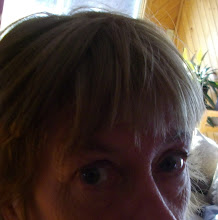 "According to The Buddha, the Middle Way is a
"According to The Buddha, the Middle Way is alife lived between the extremes of self-denial and
self-indulgence. Neither hedonistic nor ascetic are to be imitated, for the Noble Eightfold Path weaves its way through life avoiding both these unenlightened lifestyles. To see the world in light of the Buddhadharma is to have Right View, not only recognizing the suffering that is caused by desire, but also the path that leads to the ending of all such suffering, based in the Right Intention to let go of lust, ill-will and cruelty - to lead a harmless life through practicing mindful meditation and cultivating a moral lifestyle.
~ from The Middle Way: Commentaries on Meditation, Zen, Buddhism and Mindfulness
This traditional view is based largely on discrimination between opposites - self-denial vs self-indulgence, hedonistic vs ascetic, right vs wrong - making possible the avoidance of unwholesome states and the cultivation of wholesome ones. Its promise is "...it is in the walking of this Middle Way that one discovers Nirvana, releasing the pain and anguish of the ego into the serenity of our Buddha-nature."
~~~~
Contrast that view with Zen Master Genpo Roshi's perspective:

Transcend discrimination of opposites
Discover total reality
And achieve detachment
This is true freedom
~ Shinjingakudo - Dogen Zenji (1200-1253)
Transcend discrimination of opposites is what I mean by include and embrace the opposites.
Discover total reality in Big Heart Zen is what is meant by the Apex
And achieve detachment is what I mean by detaching from the opposites
This is true freedom
In this amazing blogpost entitled Zen for the World Roshi observes that all major spiritual communities, including Buddhists, experience internal conflict between fundamentalists with ideas of what is right and wrong and good and evil and liberals who feel or believe that they are free from such rigid distinctions, neither side being willing to accept or include the other. In his words, "Either view is limited and incomplete and one without the other destroys a relationship that respects the natural order of things."
"The visionary perspective disappears as soon as we believe that we are some particular thing, or our lives are about something particular, and we disown or invalidate what we are not about or believe that we are not. So for example if I believe that I am a good person, I suppress or disown my badness. If I am an aware or conscious person, then I disown and make wrong the lack of awareness or consciousness. If I think I am an enlightened being then I make those whom I believe to be unenlightened inferior and less than me. If I believe that I am a good and ethical person then anyone who appears to me as unethical and bad I judge and make wrong.Roshi believes it's time for a perspective which sees clearly and without preference the pairs of interdependent opposites: yin is dependent on yang, Easterners on Westerners, and in this case fundamentalists on liberals. "It is the natural order of things that exist because of their position relative to their polar opposites. Zen calls this co-dependent origination."
"So if I see myself as spiritual and otherworldly, then I put down worldly and so-called non-spiritual endeavors and actions. They become shadows of the spiritual person. In other words I disown everything that I consider to be not spiritual, like being greedy, competitive, an asshole, egocentric, boasting, selling oneself, undisciplined, sexual and arrogant. Then what happens is my shadow, or those parts of myself that I consider to be unspiritual, are disowned. I then project these non-spiritual aspects onto other people and make them wrong, or even hate them for being so unspiritual. I divide the world into good and bad people, meaning spiritual like myself and non-spiritual like those 'others'. I begin to equate success with being closer to the spiritual teacher or enlightened beings, or to having a position of some small degree of power, like getting to hand the teacher a cup of coffee or a tissue."
While accepting the inevitability of distinctions such as good and bad, right and wrong, he cautions us to remember that these are concepts, not absolute fixed realities, and are completely dependent on circumstances. He uses the term Apex to describe the point from where we can hold the tension of opposites and go beyond them - including and transcending all perspectives. (Can we say Integral?) This is what he means by the visionary perspective - that we can understand and appreciate opposites without being bound by either one. "Then we can detach from both and declare our ownership and mastery of our own life."
"Using Dogen Zenji's phrase, this is what I call true freedom, which transcends free and unfree, which is freedom in the midst of suffering."
~~~~
To enjoy the entire blogpost, and to step into the boundless world of Big Mind/Big Heart, just click HERE.
~~~~
There was one who was human and his humanity was thought to be his weakness
but it turned out to be his greatest strength.
- Richard Bach in Illusions: The Adventures of a Reluctant Messiah
~~~~

No comments:
Post a Comment